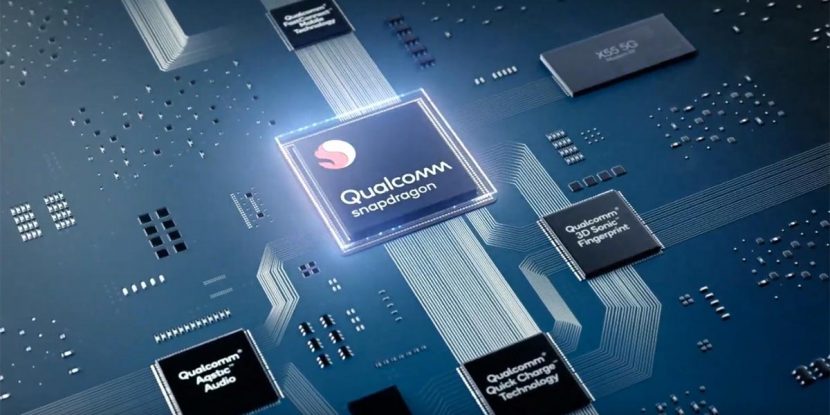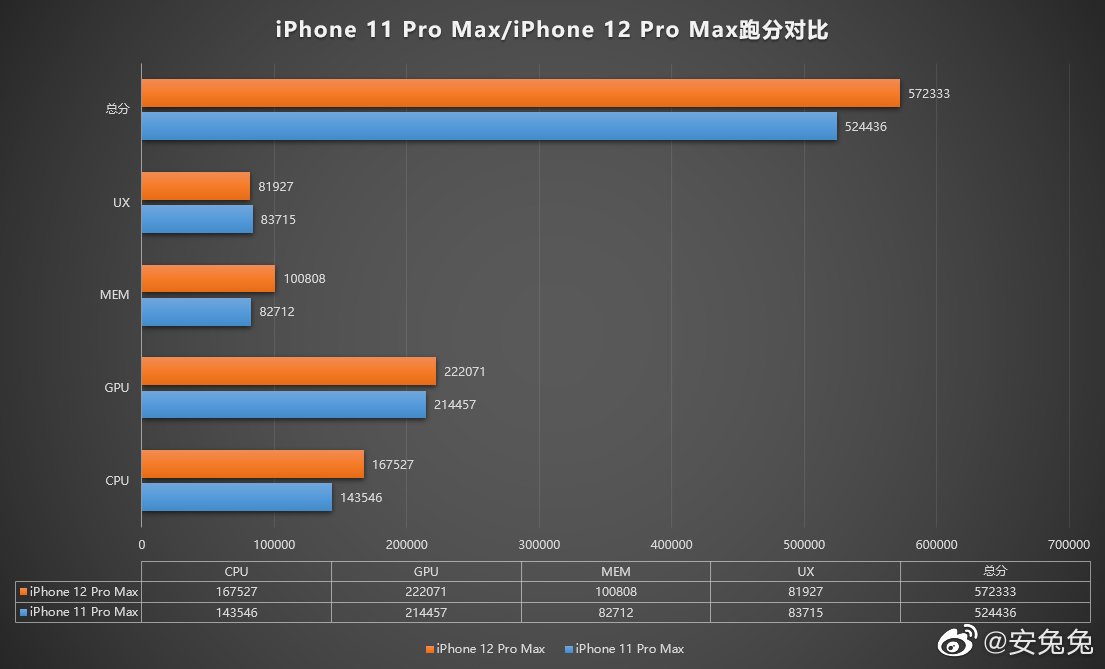
The benchmarks are there to place us in almost any scenario, as far as performance and other processing sections are concerned. AnTuTu is one of the most popular, along with Geekbench, in the world of smartphones, frequently telling us how powerful these are based on the scores obtained by the processor chipsets they equip, although there are other factors that also influence the results. (RAM, ROM, GPU, etc), but to a lesser extent.
With each passing year, we see a significant evolution in the flagship processor segment, these being the expensive terminal engines that don't typically go for less than 600-700 euros normally.
In the case of new iPhone 12We are talking about prices that reach up to 1.600 euros and, for this figure, we always expect great advances, but what we have seen with the new and "promising" Apple A14 Bionic chipset, which is in charge of giving power to these mobiles, is that they offer a performance that is well below what was announced by the Cupertino firm and what was expected.
So much is this that el Snapdragon 865 -as well as the Plu versions- overcomes it with a considerable advantage, and it is worth bearing in mind that the A14 Bionic is a competitor and direct rival of the not yet announced Qualcomm Snapdragon 875, which would be launched next month or, at the latest, in December, and not of the already named mobile platform. Already there we see where the shots go.
Apple's A14 Bionic is not what Apple paints it
The A14 Bionic arrives as a part with a 5nm node size. At the marketing level, this represents a great improvement in terms of performance, and not only in that, but also in practice and, of course, on a theoretical level - this is demonstrated by the Samsung's new Exynos 1080-. However, in the presentation of the iPhone 12, Apple said that this SoC was 40% in CPU and 30% in GPU above the predecessor A13 Bionic, and what AnTuTu details in one of its most recent tests is that this It is not like this.

A14 Bionic (572.333) vs A13 Bionic (524.436) in AnTuTu
In question, the iPhone 12 Pro Max has passed through the hands of AnTuTu, this being the benchmark in charge of giving it a score of 572.333 points in its test platform, a figure that is not bad at all and exceeds that obtained by the A13 Bionic of the iPhone 11 and, therefore, of the Pro Max version of said predecessor series, model taken for the comparison and that managed to score about 524.436 points.
However, what is not understood is how this 5nm chipset, with bombastic improvements announced, fails to even match the Snapdragon 865, which has a 7 nm architecture. In addition, the percentages mentioned above do not match the difference between the two figures marked by the A14 Bionic and A13 Bionic, respectively.
On the other hand, if we go to top of the high-end mobiles with the best performance of AnTuTu, we find a table dominated entirely by the Snapdragon 865, for being the most powerful chipset of all today, above the most powerful Kirin and Exynos solutions of the moment ... The highest score of this rankinh, which was registered by the IQOO 5 PRO and it is 663.752 points, it makes the figure obtained by Apple's A14 Bionic completely ridiculous, without more.
Apparently, the number of transistors per unit area in the silicon of the A14 Bionic, which is about 11.800 million, according to the American manufacturer, does not quite correspond to the expectations generated. Nevertheless, the performance of the iPhone 12 cannot be entirely questioned by these data.
AnTutu exposed the results of the iPhone 12 Pro Max, and the performance of the Apple A14 was disappointing. This score is even lower than Snapdragon 865+. pic.twitter.com/7x5feZ0GPo
- Ice universe (@UniverseIce) September 17, 2020
Although at the raw level the SoC of these phones offers a lower performance than the Snapdragon 865, in practice the difference in performance experience is shortened, something that we already evidenced with the iPhone 11 and the A13 Bionic, which did not assume processing speeds slow or very far from those normally obtained with the aforementioned Qualcomm processor.